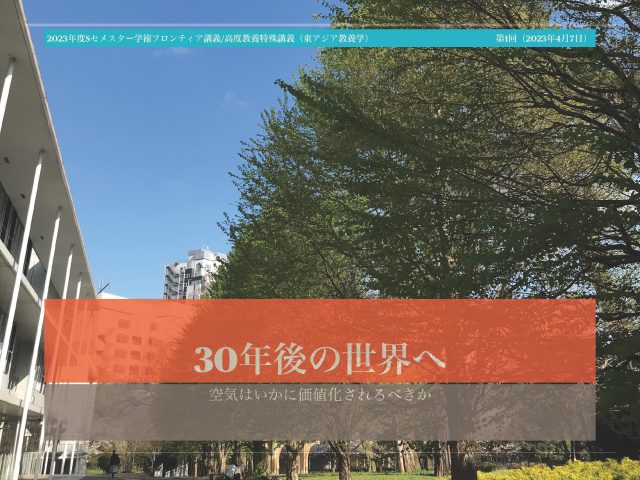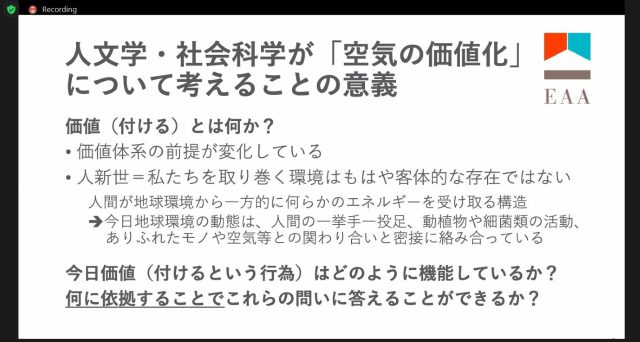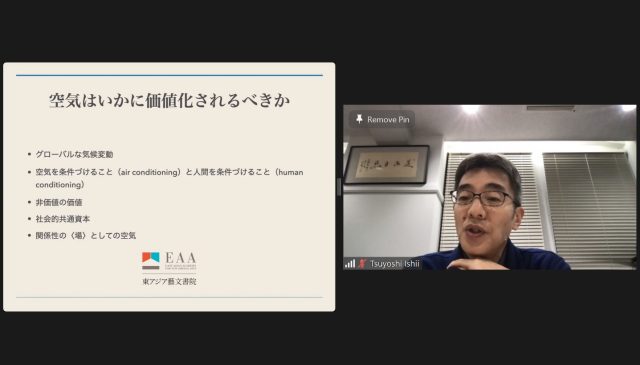On April 7, 2023, the kick-off session of this year’s Academic Frontier Lecture Series was delivered online via Zoom. This first lecture served as an orientation for the course, giving an overall view of the topic and introducing the schedule.

The lecture took off with Project Assistant Professor Shuntaro Nozawa’s (Graduate School of Arts and Sciences) introduction to the keywords for this year’s topic. As is widely known, we now live in the so-called Anthropocene, where humanity’s actions have begun to influence the planet’s fragile ecological balance in ways previously unimaginable. It is with this in mind that this year’s focus falls on the concepts of “air” and “value.” But how does one approach such concepts? Just as with climate change, it would be impossible to rely solely on the knowledge of already established academic disciplines. What is needed here is a new type of scholarly endeavor, as well as a new approach to cultivating humanity’s capabilities—and this is precisely what both the interdisciplinary education at Komaba campus as well as EAA’s ideal of “New Liberal Arts” stand for.

For some people the word “value” might evoke a strong association with ideas of monetary value. However, as Professor Tsuyoshi Ishii (EAA Director) stressed, it would be indeed unthinkable to put a monetary value on air. Instead, one might find it helpful to consider value itself as a sort of “non-value” (非価値の価値). Professor Ishii also made a striking remark regarding the concept of air. It is not difficult to consider air, or a multilayered notion of “atmosphere,” as an essential substance connecting one thing to another. Yet as humanity faced a global pandemic 3 years ago, our reaction was to build walls and create divisions in this “atmosphere.” Would it then be impossible to consider that the subsequent changes in world affairs—namely a raging war and continuously growing international tensions—might also be a product of this same attitude? If one thing is certain, it is that the importance of the concept of air or “atmosphere” exceeds its mere physical dimensions.

So what can academia do when faced with such complex yet urgent problems? Maybe the words of anthropologist David Graeber provide a hint. In his book Toward an Anthropological Theory of Value: The False Coin of Our Own Dreams (Palgrave Macmillan, 2001), which saw its Japanese translation published last year, Graeber refers to his work as “an attempt at least to begin to imagine what a humanistic social science” might look like. As this year’s lecture series proceeds to tackle the concepts of “air” and “value,” perhaps it will be the freedom of one’s imagination that will ultimately guide us all to new beginnings in our relationship with the planet, and with ourselves.
Report by Viktoriya Nikolova (EAA Research Assistant)








